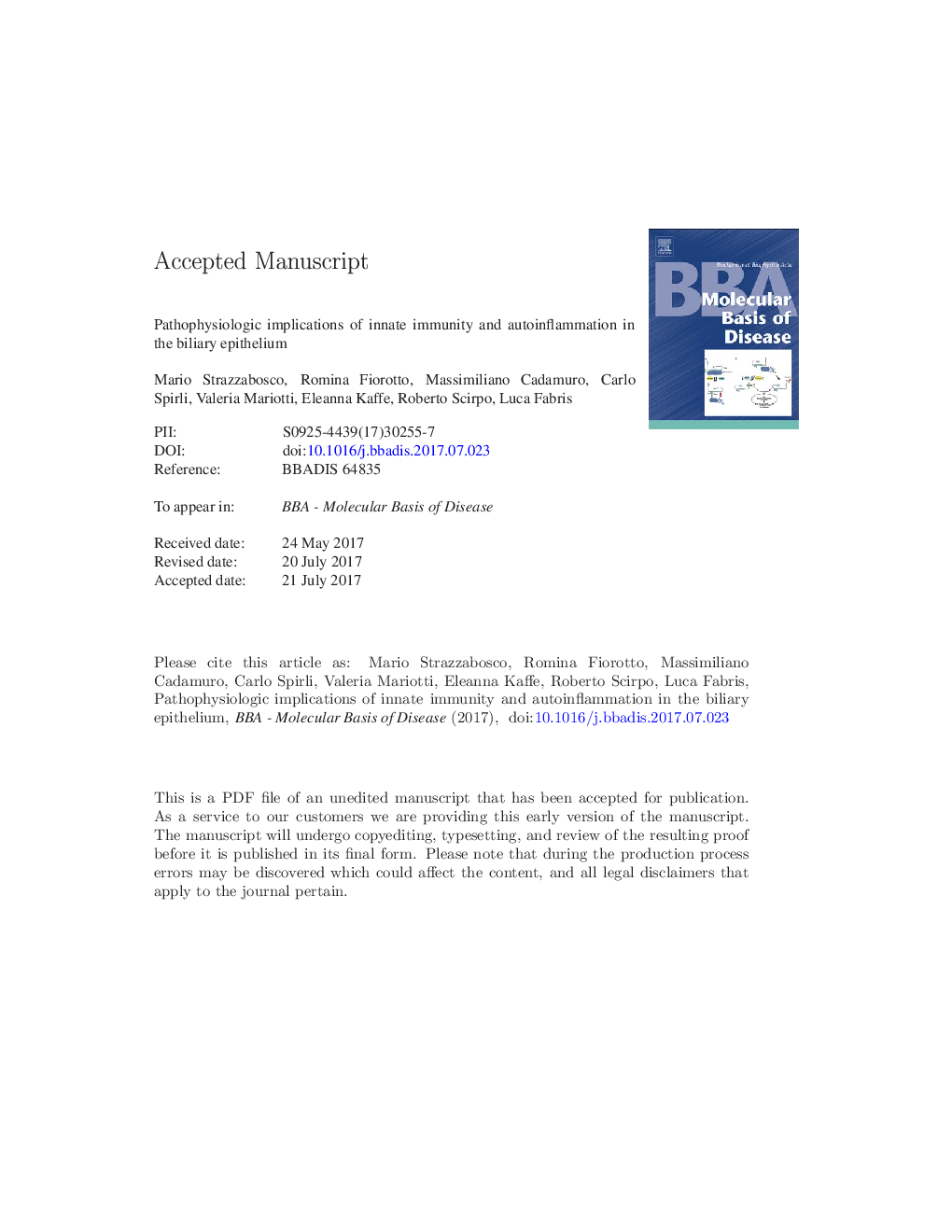| Article ID | Journal | Published Year | Pages | File Type |
|---|---|---|---|---|
| 8258521 | Biochimica et Biophysica Acta (BBA) - Molecular Basis of Disease | 2018 | 24 Pages |
Abstract
The most studied physiological function of biliary epithelial cells (cholangiocytes) is to regulate bile flow and composition, in particular the hydration and alkalinity of the primary bile secreted by hepatocytes. After almost three decades of studies it is now become clear that cholangiocytes are also involved in epithelial innate immunity, in inflammation, and in the reparative processes in response to liver damage. An increasing number of evidence highlights the ability of cholangiocyte to undergo changes in phenotype and function in response to liver damage. By participating actively to the immune and inflammatory responses, cholangiocytes represent a first defense line against liver injury from different causes. Indeed, cholangiocytes express a number of receptors able to recognize pathogen- or damage-associated molecular patterns (PAMPs/DAMPs), such as Toll-like receptors (TLR), which modulate their pro-inflammatory behavior. Cholangiocytes can be both the targets and the initiators of the inflammatory process. Derangements of the signals controlling these mechanisms are at the basis of the pathogenesis of different cholangiopathies, both hereditary and acquired, such as cystic fibrosis-related liver disease and sclerosing cholangitis. This article is part of a Special Issue entitled: Cholangiocytes in Health and Diseaseedited by Jesus Banales, Marco Marzioni, Nicholas LaRusso and Peter Jansen.
Keywords
HMGB-1AE2HspCFTRChFTLRIPSCCXCL1CXCL12hBD2FXRCholangiocytesPPAR-γVDRNLRP3C-X-C motif chemokine 12CXCL10FPCC-X-C motif chemokine 10Chemokine ligand 1PKHD1LIXRNOSNLR family pyrin domain containing 3MALLPSNOSDAMPsPAMPsIBDPSCMYD88cAMPfarnesoid X receptorTRIFAdenosine TriphosphateATPCyclic adenosine monophosphateInflammasomeinflammationTIR-domain-containing adapter-inducing interferon-βInflammatory bowel diseaseTRAMToll-like receptordanger associated molecular patternscystic fibrosis transmembrane conductance regulatorInduced pluripotent stem cellsCytokinesRdcGranulocyte-colony stimulating factorG-CSFfibrocystincongenital hepatic fibrosislipopolysaccharideTRIF-related adaptor moleculenitric oxide synthasepathogen associated molecular patternsmyeloid differentiation primary response gene 88High mobility group box 1 proteinHeat shock proteinPrimary sclerosing cholangitisPeroxisome proliferator-activated receptor gammaReactive nitrogen oxide speciesVitamin D receptorglucocorticoid receptorNuclear receptor
Related Topics
Life Sciences
Biochemistry, Genetics and Molecular Biology
Ageing
Authors
Mario Strazzabosco, Romina Fiorotto, Massimiliano Cadamuro, Carlo Spirli, Valeria Mariotti, Eleanna Kaffe, Roberto Scirpo, Luca Fabris,
